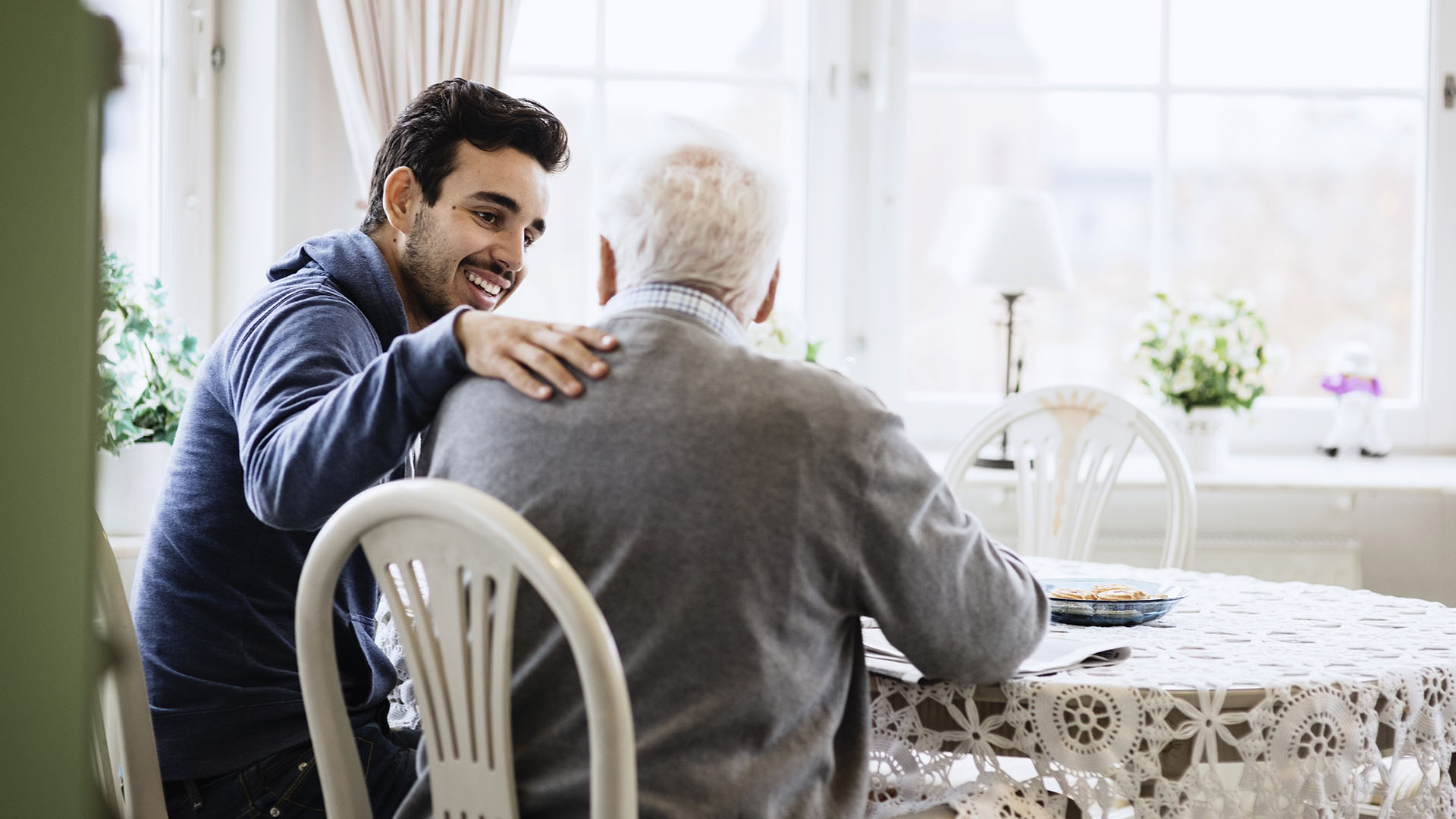
Earlier this month, our team hosted a webinar, Health and Wellness for Seniors (65+), where we talked about preventative care, Medicare and Medicaid, and an often overlooked issue: caring for caregivers.
Approximately 23 million baby boomers will age into Medicare through 2030, and as a result, more employees than ever before are stepping into the role of caregiver.
While caring for a loved one is necessary and admirable, it’s no easy feat.
There are countless doctor’s appointments, coordinating care, benefits, insurance, and claims.
And with all the to-dos also comes frustration, anxiety, and worry, and the physical, mental, emotional, and financial toll is significant.
"Most caregivers think they can manage work and caregiving on their own, but the reality is that they end up feeling stressed and burned out.”
Many also aren’t aware of the resources available to them, or how to find them, so they end up carrying the burden alone.
The caregiver crisis, however, isn’t going away, and the number of employees who will care for loved ones will only increase, spurring the need for new solutions that meet the needs of employees and their loved ones.
Older Adults Have Unique Healthcare Needs
With aging comes physical, mental, and emotional health challenges that are top of mind for caregivers.
According to the Centers for Disease Control and Prevention (CDC), 85% of adults aged 65 and older have at least one chronic condition such as hypertension, high cholesterol, arthritis, and type-2 diabetes, while 65% have two or more chronic conditions.
Plus, every year, approximately 36 million falls are reported among older adults, leading to injuries, emergency department visits, and hospitalizations.
Social isolation and loneliness are also prevalent in older adults.
baby boomers who will age into Medicare through 2030
A report from the National Academies of Sciences, Engineering, and Medicine (NASEM) found that one-quarter of people aged 65 and older who live in community settings are socially isolated and 43% of adults age 60 or older say they feel lonely.
Research shows loneliness and social isolation are associated with a higher risk for health problems, such as heart disease, depression, and cognitive decline.
Of course, socializing with others becomes harder with age, particularly when a spouse passes away, family relocates, and there are fewer opportunities overall to connect.
of caregivers are women
time caregivers spend per week providing care
of caregivers reduce their hours or transition to part-time work
of caregivers find it difficult to take care of their own health
One in 5 Employees Provide Care for a Loved One
In the U.S. 20% of full-time employees provide care on a regular basis for a family member or friend with a serious illness, developmental disorder, or disability.
When we talk about caregiving, we can’t fail to mention the Sandwich Generation—the 12 percent of parents with a child under 18 at home who also provide unpaid care for an older adult as well. Seventy-two percent of this population are employed.
Similar to childcare, caring for older adults disproportionately falls on women, with 75% assuming the role.
The amount of time required to care for a loved one is equivalent to a part-time job, with caregivers spending 24 hours a week providing care.
Employees who are caregivers often have unplanned absences, arrive late or have to leave work early.
They often face distractions or interruptions at work in regard to caring for their loved ones, have impaired work performance, or are forced to change their employment status.
In fact, 44% of caregivers reduced their hours or transitioned to part-time work, and 19% were forced to quit, according to a report by the Rosalynn Carter Institute for Caregivers.
Caregivers are more likely to have physical, mental, and emotional health problems as well. In fact, 23% of caregivers find it difficult to take care of their own health and the same amount said caregiving has made their health worse.
of caregivers who are employed full-time say the emotional stress of handling both job and caregiver responsibilities is a top challenge
Due to the constant demands, caregiver burnout is common. Sixty-two percent of caregivers who are employed full-time say the emotional stress of handling both job and caregiver responsibilities is a top challenge.
They may have problems with concentration and focus, experience sleep problems, exhaustion, anxiety and depression, and may have unhealthy coping mechanisms such as substance use.
Health equity is another challenge.
Caregivers often lack access to quality providers for their loved ones, and they don’t always understand their employee benefits or what is available to them regarding caregiving support.
Plus, services such as transportation for doctor’s appointments and day programs, for example, may not be adequate to meet the needs of the older adult.
of employees do not have access to benefits to support elderly caregiving responsibilities, but 84% are receptive to the idea
full-time employees provide care on a regular basis for a family member or friend with a serious illness, developmental disorder, or disability
How Employers Can Support Caregivers
For employers looking to attract and retain employees, and control rising healthcare costs this year and beyond, offering benefits for caregivers is critical.
A 2021 survey found that 79% of employees do not have access to benefits to support elderly caregiving responsibilities, but 84% were receptive to the idea of their employer offering a benefit that provided resources, guidance, or support.
Caregiving support or healthcare navigation solutions can guide employees to quality providers and address social determinants of health (SDoH) gaps, and financial and legal matters. Instead of caregivers searching for resources on their own, they are guided to vetted resources that also promote health equity.
Some include:
Employers may also seek out solutions such as Honor Expert, Papa Health and Cariloop to support employees.
Alight is proud to include Cariloop in our Partner Network, a set of high-value solutions curated to give employers added ease in implementation and integration. Cariloop provides human-powered caregiver support, helping employees plan for and manage the needs of their loved ones— from children to adults to elders. Licensed Care Coaches are available in as little as an hour to guide caregivers through a range of topics, including legal issues, finances, navigating the education system, finding daycare and babysitters, securing community-based resources, and even support with having difficult conversations.
“The caregiver crisis isn’t going away, and the number of employees who will care for loved ones will only increase, spurring the need for new solutions that meet the needs of employees and their loved ones.”
At Alight, we are committed to supporting employee caregivers, improving health equity, and reducing costs.
Through our Healthcare Navigation solutions, employees:
- Gain a thorough understanding of their benefits.
- Find highly-rated, cost-effective providers.
- Understand any medical condition and explore available treatment options.
- Are guided to the right caregiving support resources and programs, at the right time.
- Get access to a library of resources about caregiving, stress management, mental health concerns, and more.
- Have a compassionate, confidential place to receive ongoing emotional support and help coping.
Through education, tailored research, and expert referrals, we support caregivers through any health decision. We get to know employees’ preferences, barriers, risk factors, and support systems.


